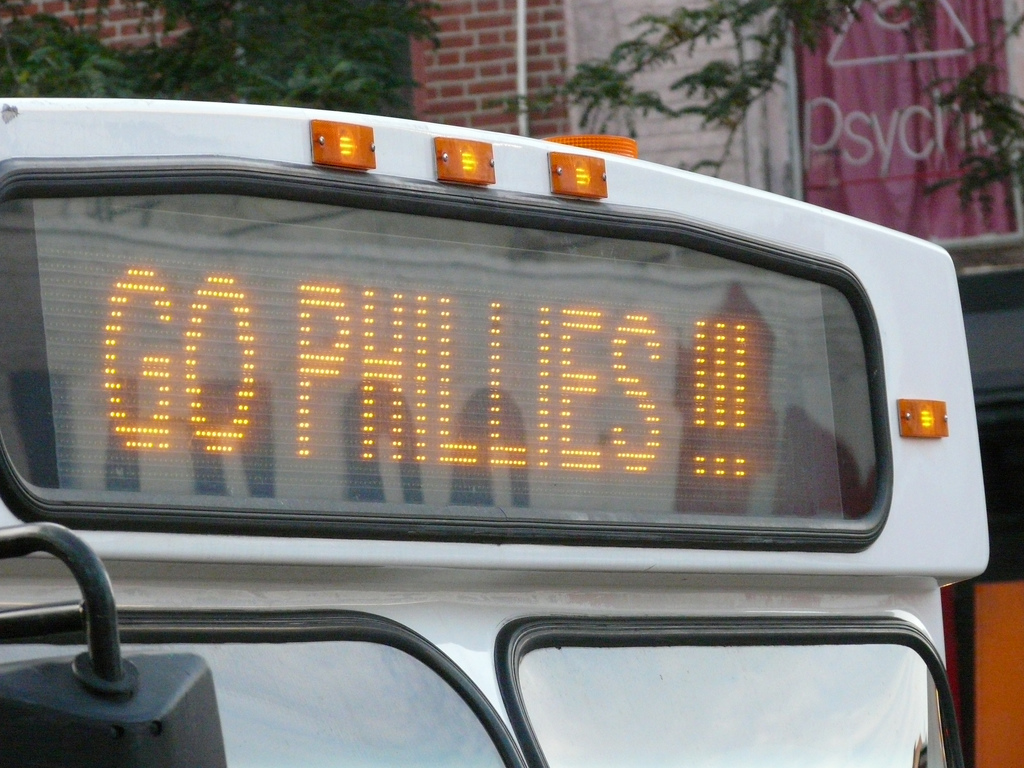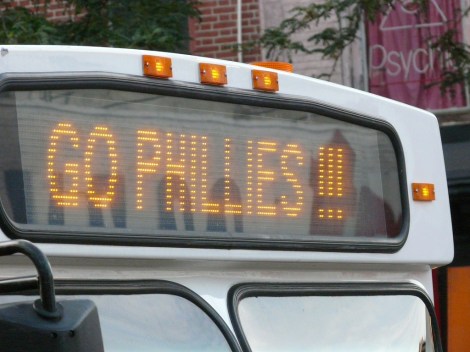The Southeastern Pennsylvania Transportation Authority has come a long way, baby. Back in the ’90s, it was mired in $75 million in debt and under investigation by the FBI. Now it’s being honored [PDF] as one of the top transit agencies in the nation.
The Philadelphia Daily News has the story of how SEPTA was turned around over the last two decades, in large part thanks to board chair Pat Deon. After years of operating in the red, Philly’s transit systems added revenue-generating advertisements, balanced its budget, and drove right into the black.
SEPTA’s chief financial officer, Richard Burnfield, said the Deon-era board’s commitment to running SEPTA like a business with balanced budgets has attracted hundreds of millions of dollars in government funding that riders enjoy through new Silverliner V regional-rail cars ($330 million), 440 new hybrid buses ($232 million) and beautifully rebuilt subway stations such as Spring Garden and Girard ($30 million).
There were also some notable cultural shifts at the agency.
A big accomplishment during Deon’s tenure has been the cessation of hostilities between the 15-member board’s 13 suburban members and two city members.
Rina Cutler, who was appointed to the board by Mayor Nutter five years ago, said, “It was very clear to me that the city and SEPTA spent a long time poking each other in the eye, and that this relationship was not useful.
“I came from Boston, where people have such a love affair with transit, they wear T-shirts with an MBTA [Massachusetts Bay Transportation Authority] route map on them,” Cutler said. “That model didn’t exist here.”
Cutler said she and Deon “have a healthy respect” for one another and “we don’t poke each other in the eyes anymore.”
Deon told the Daily News: “When I first came here, this was just a pitiful operation. For myself and the board, it was like turning around an ocean liner. But we did it.”
Now Deon is pushing for a new smart-card system that would allow poorer transit riders without bank accounts to deposit their checks directly into the system, saving hundreds of dollars in fees and streamlining their rides. The city also plans to phase out subway tokens (!) by 2014.
The problems SEPTA has faced are more or less the same ones facing other regional transit systems that reach across poor urban communities and more affluent suburban ones (give or take an FBI investigation and some bus-related gunfire). If Philly can turn things around, perhaps there’s hope for us all.




